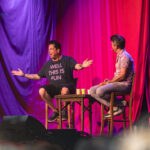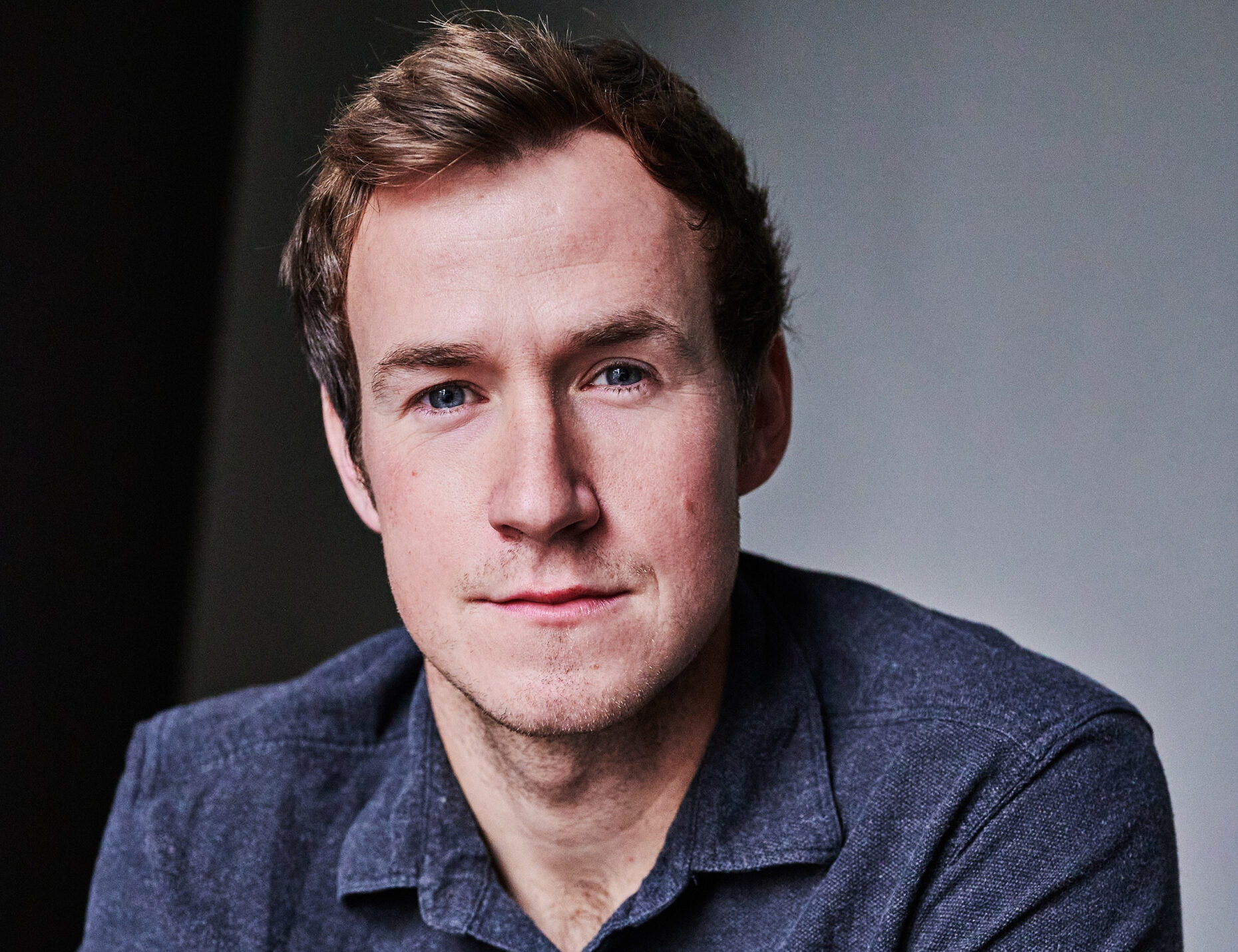Q&A with Rob Watts
Hi Rob, thanks for talking with us about your new production, Birds and Bees, and your career. Can you tell us a little about your background and how you got into theatre-making?
Essentially, I failed my A-Levels! I had always been interested in theatre and drama at school and due to a slight hiccup in my grades, I went through clearing and got a place on a drama degree at Bretton Hall. The degree opened my eyes and mind to why we tell stories, the power the arts has in building communities and how stories can help re-imagine the world.
This led me into developing work with young people, communities, writers, poets, and designers. I have been lucky enough to have worked at the National Theatre, Barbican, as an Associate at Headlong, Immediate Theatre and am now privileged to be Artistic Director at Theatre Centre.
Whatever show I’m creating, it will explore how we can make sense of the disparate and increasingly ridiculous world we live in or try to imagine a new version of it.
What can you tell us about the play and how you’ve approached directing it?
Birds and Bees asks: what if young people were taught to have complicated, honest conversations about sex – rather than the current system that is still usually based in biology and is generally heteronormative. As Billy says at the end of the play: “…the positive effect could be huge! How you feel about yourself, and your sexuality, and your identity and your body and how you are as a human having healthy relationships with other humans. And how to see each other, as we really are, and respect each other….”
We follow four school students trying to work out who they are, what their truth is and how they navigate the crunchy business of being a teenager – essentially, it’s a 21st Century Breakfast Club! It’s a funny, heartbreaking, thorny, joyful mess.
As a director I never have a well-defined vision for a show however, I know what I want it to feel like and what I want the audience to leave with. I co-create the show with the creative team and actors in the room. Everyone offers suggestions as to how the show might flow and my job is like an editor, taking the most interesting and useful parts to tell the best story.
How important is it that the play has been made in conversation with young people and developed with input from teachers and students?
It’s essential. Our process is all about making work that resonates with young people and their lives. The only way we can do that is by working directly with as many young people as possible. We create spaces where young people, adults, artists, and teachers can have complex, brilliant conversations about the world and we listen.
The writer Charlie and I met with 100’s of young people, parents, and teachers across the UK to talk about the themes as well as read and feed back on drafts of the play. The result creates rich, relatable, and realistic young characters talking about things that young people want to talk about.
Charlie and I joked that we wanted to make a show that was the opposite of the patronising, didactic and generally awful theatre that we experience coming into our schools when we were young!
Does touring different venues create a challenge in how you direct a play?
It adds a complicated but exciting parameter to the show. Working with the designer, Bethany Wells, we needed to create a set which could be the same in both schools and theatres. It’s super important to me that young people get the same experience watching the show in their school hall as audiences would in a theatre. For some young people, Theatre Centre coming to their school may be the first time they see live theatre.
Bethany created a vibrant, abstract, and playful world for the characters to live in.
How have young people been reacting to the play?
The response has been wonderful. I was at a school this week where students said how the show helped them to start conversations about body image, identity and gender with their friends and teachers. My hope is that the show is a starting point for conversations – the show purposefully doesn’t solve anything but highlights a broken system and asks its audience ‘What now?’.
One young person said: “It has really opened my eyes to see that you never know what people are going through, they can look ok on the outside but are struggling on the inside.”
The show, while aimed predominantly at young people, is also going down brilliantly with adults – we all recognise the cringe-worthy conversations around sex when we were at school so the struggles we see the characters go through are quite universal.
What can we expect from you next?
We are working out what our next shows will be! We have just engaged three exceptional Resident Writers who are travelling across the country working with lots of young people and schools to listen to what they are currently needing and wanting to talk about. Through Future Makers, the way we make work, our writers will then take these ideas, work their magic, and transform them into our new plays. I am super excited to see the results.
What’s more, we will be celebrating our 70th birthday in September! We are one of the oldest touring theatre companies in the country. 70 years of continually evolving, staying relevant and making sure that theatre is at the centre of young people’s lives. We are planning a yearlong celebration so watch out for news of a big party soon!
Birds and Bees continues its national tour visiting Theatre Royal Plymouth from 9 to 11 March















